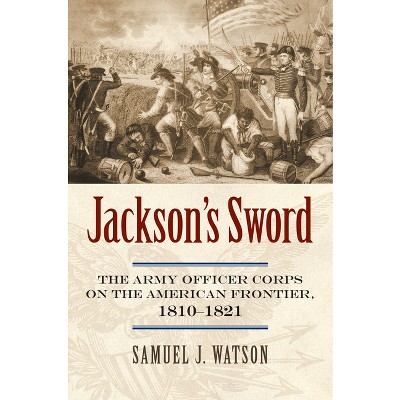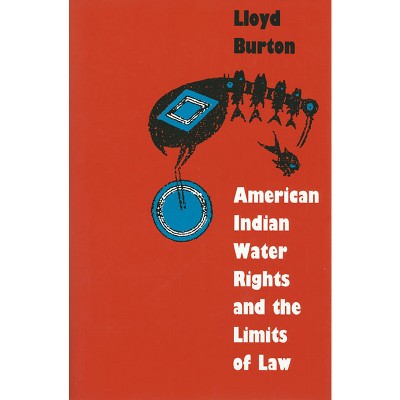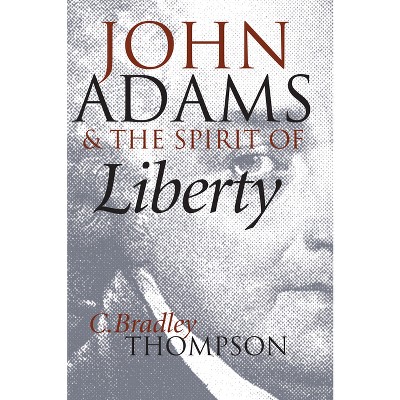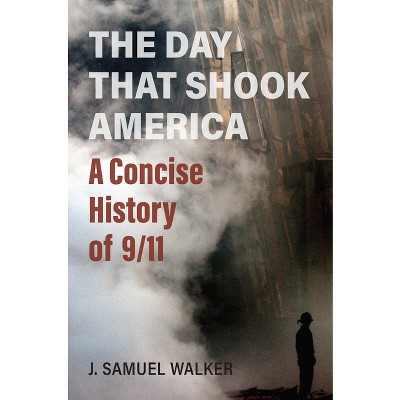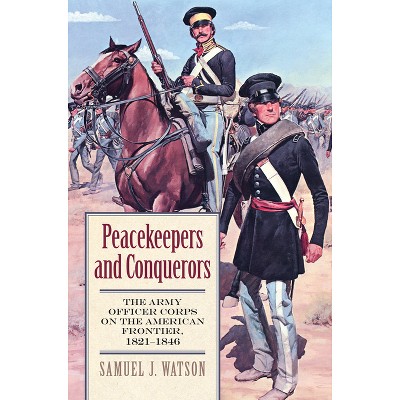Sponsored

The Spirit of 1889 - by Samuel Western (Hardcover)
In Stock
Sponsored
About this item
Highlights
- Finalist: Stubbendieck Great Plains Distinguished Book PrizeIn August 1889, the five states that were once part of the 1861 Dakota Territory--North Dakota, South Dakota, Wyoming, Montana, and Idaho--drafted their state constitutions in preparation for inclusion in the United States.
- Author(s): Samuel Western
- 208 Pages
- History, United States
Description
About the Book
"This book explores the loss of the commonweal inclusivity once found in the Great Plains and Northern Rockies. The book demonstrates how the original states of the Dakota 1861 Territory-North Dakota, South Dakota, Wyoming, Montana, and Idaho-focused on classic republican values. When statehood approached, the constitutional conventions held in August 1889 furthered a commonwealth agenda. The delegates banned child labor, promoted suffrage, curbed the power of railroads and grain monopolies, mandated state ownership of running water, opened voting eligibility, and (later) created state-owned banks. Today, these five states, the 89ers, as the book calls them, are not only among the most politically conservative, but lean toward authoritarianism. Legislators restrict voting, disenfranchise Native Americans, limit protests, squash public education, and curb immigration. These are in direct contradiction of the values found in the 1889 constitutions"--Book Synopsis
Finalist: Stubbendieck Great Plains Distinguished Book Prize
In August 1889, the five states that were once part of the 1861 Dakota Territory--North Dakota, South Dakota, Wyoming, Montana, and Idaho--drafted their state constitutions in preparation for inclusion in the United States. These constitutions were models of progressive and pragmatic values for their time. Wyoming, for instance, was the first state to grant women's suffrage. In addition to suffrage, delegates from these states banned child labor, curbed the power of railroads and grain monopolies, mandated state ownership of running water, opened voting eligibility, and created state-owned banks. These states, the "89ers," as Samuel Western calls them, exhibited a spirit of commonweal inclusivity that set them apart.
Much has changed since--and not for the better. Today, legislators in these five states have spurned these inclusive values. Instead, they promote the narrative of exclusion and lean toward authoritarianism. Legislators restrict voting, disenfranchise Native Americans, limit protests, squash public education, and discourage immigration initiatives, such as sanctuary cities. In their current condition, these states are in direct contradiction of the pragmatically inclusive and progressive values of their 1889 constitutions. The 89ers today are driven by ideological objections to political autonomy (stripping power from cities), fueling partisanship, and a rigid commitment to traditional commodity-based industries. Western sees hope for the future, but only if these states replace their fidelity to a particular idea of rural America with a more pragmatic openness to diversity and change--which will paradoxically bring them closer to the original spirit of their constitutions.
Western calls for a radical rethinking of what rural America is and could be. As a long-time resident in Wyoming, he speaks not from the outside but as someone who personally cares about this region and its future prosperity. The Spirit of 1889 aims to shed light on how these states have drifted so far from where they began and what might be done to reclaim those original values.
Review Quotes
"An underappreciated driver of our country's political problems is Middle America's hard rightward turn. Western illustrates how the Dakota states abandoned their governmental priorities and how they can change their fortune."--Ross Benes, author of Rural Rebellion: How Nebraska Became a Republican Stronghold
"Samuel Western upends our assumptions about the territories that received statehood in 1889. He suggests that rather than individual political entities, the new states constituted a region with a common--and distinctly progressive--political culture. Since the region is among the most conservative today, Western dares its residents to find a new path by embracing this history. For others, he reveals the mutability of political loyalties even as our own become increasingly fixed."--Catherine McNicol Stock, author of Nuclear Country: The Origins of the Rural New Right
"The Spirit of 1889 is an insightful look at the history of the High Plains and Northern Rocky Mountain states. It helps explain our current economic and political divisions and provides thoughtful solutions for the region. Samuel Western's book is an important discussion of topics relevant in both the late 1800s and today, from corporate power and the role of government to inequality."--Jeff Bremer, author of A New History of Iowa
"Rural populations in Wyoming, Montana, Idaho, North Dakota, and South Dakota have felt alienated as urban areas enjoy population growth and economic health. Samuel Western suggests that over-reliance on commodity economies (timber, mining, agriculture) has caused white populations (especially men) to feel they are excluded from power and prosperity. Consequently, these states that joined the union in 1889 have become bulwarks of conservatism. Western argues that a new approach to innovation and change could result in the states reclaiming their progressive heritages."--Katherine Aiken, author of Idaho's Bunker Hill: The Rise and Fall of a Great Mining Company, 1885-1981
"One thinks of the "89er" states (North and South Dakota, Wyoming, Montana, and Idaho--so called because all five wrote their constitutions in 1889), as conservative bastions, but as Samuel Western points out, those constitutions were all quite liberal. All five states are strongly commodity-based: crops, animals, timber, mining. This study, based on both research and interviews, is thoughtful, well-documented, and readable."--Jim Hoy, author of Gathering Strays: Stories from Kansas and the Southwestern Plains
"If Sam Western's The Spirit of 1889 ruffles some feathers, good. If it makes some see the state we all love from a different angle, and think about how we can make it look like our Founders envisioned . . . that's even better."--Cowboy State Daily
Shipping details
Return details
Trending Non-Fiction







